#stephen hicks
Explore tagged Tumblr posts
Text
Stephen Hicks on Postmodernism and Nietzsche
There is a video on YouTube which I have just watched now where Stephen Hicks “analysis” the postmodernists using Nietzsche’s concept of “ressentiment” which basically means “resentment”. In this post I am going to reconstruct his main argument and will argue that Nietzsche was already fundamentally mistaken in his analysis and Hicks is doing even worse by reapplying it.
First what we need to do is to define postmodernism. Hicks does not do this in this clip, but I am going to give him the benefit of doubt that this clip is from a longer lecture and he defines postmodernism at some point. Postmodernism is notoriously difficult to define, since this word is used for such a diverse set of people that it is hard to find a common thread running between all of them. I am going to use the most common definition, which is that postmodernism is scepticism about metanarratives. A metanarrative is a kind of framework which is meant to explain the course of history. For example a metanarrative would be that social progress represents the will of god, or that Marxist class struggle is the key to understanding history. As we can see already here there is a tension between postmodernism and Marxism, to which I am going to refer back later.
Next we need to present Nietzsche’s original idea. As Hicks correctly says Nietzsche differentiates between master and slave morality. Master morality is the morality of the “strong” the “life affirming”. Slave morality is the morality of the “weak” the “cowardly”. The masters resent the slaves and the slave resents the masters. But the slaves also resent themselves because actually they are envious of the masters. This makes them bitter and since they cannot confront the masters due to them being weak they try to hurt them by more insidious ways, such as telling lies. Now Hicks does not give us the full picture here. In Nietzsche’s view the main representative of slave morality is Christianity itself. Hicks lists patience, obedience, humility, and being on the side of the weak as values for the slave morality which are clearly Christian values, while he lists: aggressiveness, pride, independence, physically or materially success as the values of master morality. Of course what is a value or good for one is evil for the other. If Hicks told his audience this he would have alienated a large part of it. Even worse Nietzsche was an antidemocratic thinker, and thought democracy was slave morality as well, he says in Beyond Good and Evil that “the democratic movement is the heir of the Christian movement”, this would have alienated another large part.
At this point I would just like to point out the obvious: it is silly to think that those who are for example materially successful (and hence independent) are like that because they are somehow by nature “stronger”. If we consider a cast society where you are either born rich and inherit wealth or you are born poor without any chance of owning wealth then you would be rightly angry because you were never given a chance. So Nietzsche is completely wrong, the “weak” were “weak” for social reasons not because they were inherently weak and the “strong” were also “strong” for social reasons. And of course this has nothing really to do with who embraces the Christian faith and who does not. Christian religion is not a conspiracy against the strong by the weak. Nietzsche is doing real scholarly work in setting up his “theory”, he is just daydreaming. It is also funny to note that Nietzsche accuses Christians for being resentful while he himself is being clearly resentful towards Christians.
Now let’s see Hicks argument.
Hicks assumes that postmodernists are just socialists in disguise. This is already a very weak generalisation. Why would socialists/Marxists need to hide behind postmodernism? Terry Eagleton and Richard D. Wolff are Marxists and they don’t seem to need to disguise themselves. Eagleton is actually critical of postmodernism which is quite understandable given his Marxist stance and the definition of postmodernism we have given above. Fredric Jameson is associated with postmodernism yet he too does not shy away from calling himself a Marxist. The two examples Hick himself gives are Stanley Fish and Andrea Dworkin.
Stanley Fish has supposedly called all opponents of affirmative action “bigots” and lumped these people with the Ku Klux Klan. I couldn’t find the exact text for this but it seems this is from Fish’s book “There's No Such Thing As Free Speech: And It's a Good Thing, Too”.
Andrea Dworkin supposedly said “all heterosexual men are rapists”. For this I have found a Guardian article, which I am going to quote now:
“The attacks on Dworkin were not only personal; they also applied to her work. John Berger once called Dworkin "the most misrepresented writer in the western world". She has always been seen as the woman who said that all men are rapists, and that all sex is rape. In fact, she said neither of these things. Here's what she told me in 1997: "If you believe that what people call normal sex is an act of dominance, where a man desires a woman so much that he will use force against her to express his desire, if you believe that's romantic, that's the truth about sexual desire, then if someone denounces force in sex it sounds like they're denouncing sex. If conquest is your mode of understanding sexuality, and the man is supposed to be a predator, and then feminists come along and say, no, sorry, that's using force, that's rape - a lot of male writers have drawn the conclusion that I'm saying all sex is rape." In other words, it's not that all sex involves force, but that all sex which does involve force is rape.”
So it seems if this article is right then clearly Hicks is misrepresenting Dworkin which is bad enough but there is another question: what does she have to do with postmodernism? Yes, Stanley Fish is considered a postmodern literary critic, but Andrea Dworkin is a feminist author, and unless feminism is inherently postmodern she couldn’t really be called a postmodern thinker.
So already Hicks is on shaky ground assuming that postmodernism is just a disguise for socialists. But let’s move on.
What Hicks does next is basically just recasting postmodernists in the role of slaves and capitalists in the role of masters. The idea is that postmodernists are just socialists who were defeated and so they are now the representatives of slave morality. Again if the conservative audience were informed about Nietzsche’s original target, it would be really funny to see how they would have reacted when Hicks basically assigns traditional Christian values to postmodernism.
So for him the capitalists are the strong and the socialists are the weak. But since they are weak they cannot confront the capitalists, all they can use are words. According to Hicks deconstruction is the method of the defeated socialists which they use for this purpose. Deconstruction originates from the work of Jacques Derrida, and it became popular in literary criticism, it is clearly not a weapon to destroy the achievements of western culture. Hicks tells us about a dismissive deconstructive reading of Shakespeare but does not tell us about the author, so I couldn’t check his example. But even if he is right about that specific piece, are we seriously supposed to think that all literary critics who employ deconstruction in their readings of texts are secret socialists who in face hate literature and because literary critics just to destroy it?
Hicks tells us about two “examples” from the visual arts to illustrate this malicious intention. His examples are two works from Marcel Duchamp: Fountain so called readymade sculpture, which is actually a porcelain urinal and L.H.O.O.Q. which is a parody of the Mona Lisa. Now I find this part the most embarrassing. Hicks is not willing to engage with Duchamp’s work. He claims that Duchamp is just envious of past masters and realizing that since he himself is incapable to creating such works decides to destroy art for the sheer thrill of destruction. Marcel Duchamp is one of the most celebrated artists of the 20th century. This simplistic idea that Duchamp is just filled with rage and resentment because of his own lack of talent is such an simplistic understanding of his work that it is simply not worth discussing. I would just like to remind Hicks that earlier he criticized postmodernism for ad hominem so it is quite surprising that now he himself makes one against Duchamp. I would also like to assure Stephen Hicks that Duchamp did not destroy anything; the Mona Lisa is still the world’s most recognized painting and is still displayed in the Louvre. It is actually hard to see the relevance of these examples: I guess the examples were only meant to illustrate how the slaves can hurt the masters but how is Marcel Duchamp a representative of slave morality here? The Fountain is from 1913 and L.H.O.O.Q, is from 1919 long before the postmodern philosophy. Hicks told us that deconstruction is weapon of the postmodern but Derrida, the inventor of this “weapon” was not even born yet.
Finally it seems postmodernist didn’t even need deconstruction since all they do is spread lies. Hicks says that the worst way to hurt a family man is to accuse him being child molesters or to hurt a women is to say that she is a gold-diggers. Now again I must point out the obvious that spreading such lies has nothing to do with being a leftist or a postmodernist. This is the oldest trick in the book and is done constantly on all political sides. Hicks draws an analogy with spreading such lies about people to lying about western civilisation itself. So accusations of racism and intolerance are somehow only lies about western civilization. I think there are many episodes in history where the west could not live up to its own expectation. Slavery and segregation in the United States or colonisation by Europeans are clear examples and only a delusional person could dismiss criticism for these terrible acts. The west must face up to the horrible things it caused.
There is an important point here, which is only obscured by Hicks, so let me turn now to a much more capable philosopher: Richard Rorty. Rorty in his book “Achieving our Country” discusses similar issues as Hicks does here, but his presentation is much more sympathetic and insightful. Rorty says that national pride for a country is like self-esteem for person, without it there is not much hope for a change for the better. He acknowledges that the United States did some horrible things, and he says that the new left deserve praise for calling attention to racism, misogyny, and the status of sexual minorities. However, Rorty thniks the truly important question is if we believe that things can be changed for the better within the current political system or not. His complaint is that many on the new left seem to think that the US has passed redemption and they turn away from everyday political matters to academic theorizing. Rorty regrets this outcome and proposes that we take inspiration from the progressive era. I think Rorty’s advice here is just what we need in our time, and what we really don’t need is the kind of moral panic Stephen Hicks represents here.
#stephen hicks#richard rorty#philosophy#friedrich nietzsche#nietzche#postmodernism#postmodern#derrida#marcel duchamp
3 notes
·
View notes
Text

Photography by J Stephen Hicks
- Playmen, July 1981
73 notes
·
View notes
Text
a christopher eccleston appreciation post
i will never say this enough because i don't know enough words, nor do i think such words exist, that could even begin to summarize how much i love christopher eccleston, but... i love christopher eccleston. and, more importantly, i have a deep-rooted respect for that man.
i started doctor who as, let's be honest, a sci-fi hater, forcing myself because i was obsessed with david tennant, and i was kind of dreading the first series because of this. but i was dead wrong.
he broadened my mind, gave me so many laughs, and so many cries, and i'm not the first to say that whenever eccleston is on the screen you just can't take your eyes off him, even when he's not supposed to be the main focus of the scene.
the way he can switch from silly goose to traumatized soldier in a matter of seconds will never cease to amaze me. or how he can play with both like he's on a swing by balancing it out with sarcasm?
i think whoever doesn't give him the title role in their shows/films is either an idiot, or they know the main character just isn't always the best.
i think it's downright idiotic and shameful that he gets rejected from ever playing some shakespeare just because of his northern accent (they're just posh elitist pos). now that he's older, and that times are evolving (i mean, i hope the world of theater is vibing with this evolution, but i'm not delusional), i hope we get to see him portray a character like leontes in winter's tale cause i know he'd be absolutely perfect for the role, and who better than shakespeare (this character especially, with his nuances and highs and lows and breakdowns and breakthroughs) to match acting like his?
saw an article where eccleston talked about how the moment he really knew he wanted to be an actor was when he had to wear mascara for a play, and had enjoyed it. i think he talks about it in his autobiography too (you should read it, btw, it's frankly affordable, and he happens to be a marvelous writer as well).
eccleston knows he is mistakenly type-cast, because of his background, as macho men and tough blokes in general. he's aware that it's kind of a big part of his culture. again, he talks about it i think in the very first chapter, how for instance he used to dress up as james bond, the pinnacle of "masculinity", which i think was a disguise in the metaphorical sense of the term, to mask his delicacy and femininity (or at least, that's my interpretation of it).
in his biography, eccleston talks about the differences between him and his dad, ronnie: he was surprised, as a child, whenever his father's affection manifested as a kiss or a hug, cause that usually wasn't his father's way of doing things. he compares it to how he, in contrast, has the habit of kissing his own son, albert, and telling him he loves him.
you can find it as well in how he talks about his anorexia, his body dysmorphia and, i think we can call it that, gender dysphoria. he's from a time when those concepts didn't even exist, they weren't a thing to the public eye. my father and my step-father, both feminine men in their own way, and both around eccleston's age, both told me about the struggle that it represented, not being the stereotype of the macho tough guy, and being surrounded by boys who didn't struggle with that issue. it made my dad a junkie, my stepdad a depressive artist, and, apparently, it made eccleston an anorexic actor.
i think it takes a lot of courage for people that age (the boomer generation as we call them), especially men, from whom we expect toxic masculinity, masculinity pushed to an extreme, to be able to openly call it out and dissect it into what it is: a ridiculous standard. but to be a PUBLIC FIGURE, in his 60s, and still find the strength to express it? damn. takes guts, i think.
most of us on this website, we're babies. most of us are at most in their thirties. the millenials and the gen z, and now the gen alpha, we take that for granted. or get offended and scandalized that being able to express oneself isn't yet a basic standard.
but then, i talk to my mum, and i realize that she had to stray from her catholic, sexist education, she had to make up her own mind about things in order for me to be born a free spirit. and that's just considering my mum's a cishet.
christopher eccleston expressed in other words that he doesn't fully consider himself to be cisgendered. i have mad respect for the way he talks about it, and for even talking about it at all.
then, there's his honesty. the more interviews i watch, the more it impresses me. he knows honesty goes hand in hand with dignity. i'm sorry but i'm tired of people who are nice all the time. you never know when they're being honest, and maybe some of them are, who knows. but i'm not stupid enough to think that so many people are just pure sunshine all the time (respect for tennant for lashing out publically about transphobia, i think he passed the test).
eccleston? he knows how to be both brutally honest and yet respectful at the same time. no ukulele apology from this man and holy fuck, it feels good!
i've seen him call russel t davies out for his lack of professionalism on the set of doctor who, and then list him amongst the great writers he's worked with. which makes me want to believe eccleston's side, because, if you're always either too polite, or too full of spite about eveything, who's to say you're not the problem? i've got way less trouble believing you if you can stay unbiased about a person you're having beef with than if suddenly everything said person does turns into shit just cause you don't like them. that's just maturity and wisdom.
one last thing i love about eccleston is that he is interested in other people's lives. there's a critic by marcus berkmann in his book that perfectly expresses my point: "you know what to expect from the autobiographies of most actors, i think: anecdotes, charm, more than mild self-satisfaction and faux-modesty by the bucketload. but christopher eccleston is not most actors".
and that's it. watch him in interviews and at convention panels, where he lets his younger co-stars speak before himself, and seizes the occasion when journalists ask him questions that are meant to make him talk about himself to praise his writers and other actors instead.
read his autobiography, which is both a love letter to his dad and a big let's-be-honest about the struggles of growing up poor and his personal struggles, because he thinks raising awareness is just as important as protecting himself.
look at his instagram posts where he unabashedly disses the monarchy and stays true and loyal to his background even after getting a taste of money. and his other posts where he shares his love for acorns and spending time with his kids.
i've seen him nearly break down in shame and regret on television for having stolen a kid's crisps in primary school. and not trying to find lame excuses for his behaviour. no ukulele apology, just facts, just christopher eccleston showing us what masculinity in its purest, most beautiful form should be about
#christopher eccleston#i love the bones of you#doctor who#ninth doctor#9th doctor#the leftovers#matt jamison#death and the compass#red scharlach#the a word#maurice scott#hearts and minds#drew mackenzie#crackers#david bilborough#our friends in the north#nicky hutchinson#shallow grave#david stephens#hillsborough#trevor hicks#jude#jude fawley#macbeth
37 notes
·
View notes
Text

#tv shows#tv series#polls#7th heaven#stephen collins#catherine hicks#jessica biel#1990s series#us american series#have you seen this series poll
24 notes
·
View notes
Text
richie tozier but with a southern accent
#i’m gonna write this fic#at some point#eddie love hating it#eddie calling him names that make fun of him being southern#eddie calling richie a hick#EDDIE MOCKING THE ACCENT#writing it now actually#it 2019#richie tozier#it#it stephen king#eddie kaspbrak#it chapter two#reddie#it movies#it 2017#ao3
35 notes
·
View notes
Text

A young Eddie!!!
I have never seen this photo before and... once I found it I asked permission to post it (because it was autographed) from a nice Irish gentleman who founded a blog on all the actors and their autographs.
So, thanks a lot to Liam Bluett and many greetings from Italy!!
#eddie redmayne#young eddie redmayne#young#theatre#elisabeth the golden age#powder blue#like minds#savage grace#the good shepherd#now or later#the pillars of the earth#my week with marilyn#hick#birdsong#les miserables#the theory of everything#the danish girl#fantastic beasts#fbawtft#the trial of the chicago 7#the good nurse#cabaret#the day of the jackal#best actor#oscar winner#talent#obe#newt scamander#stephen hawking#eddie redmayne italian blog
16 notes
·
View notes
Text




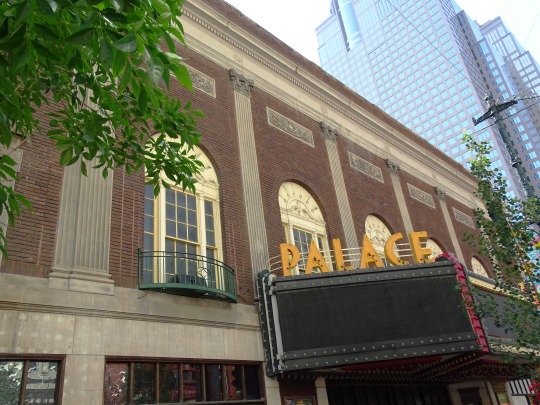





Stephen Avenue, Calgary (No. 3)
The Paskapoo Formation is a stratigraphic unit of Middle to Late Paleocene age in the Western Canada Sedimentary Basin. The Paskapoo underlies much of southwestern Alberta, and takes the name from the Blindman River (paskapiw means 'He is blind' in Cree. It was first described from outcrops along that river, near its confluence with the Red Deer River north of the city of Red Deer, by Joseph Tyrrell in 1887. It is important for its freshwater aquifers, its coal resources, and its fossil record, as well as having been the source of sandstone for the construction of fire-resistant buildings in Calgary during the early 1900s.
During the early 1900s, outcrops of Paskapoo sandstone in the Calgary area were quarried for building stone due to the requirement for fire-resistant buildings following the Calgary Fire of 1886. Many of Calgary's early landmark buildings, such as Lougheed House, Burns Manor, and some of the buildings along Stephen Avenue, were built using Paskapoo sandstone, and Calgary became known as the Sandstone City.
Paskapoo sandstone is still used in landscaping in the Calgary area today.
Source: Wikipedia
#Hollinsworth Building#Canada Life Assurance Building#Lancaster Building#Western (Kraft) Building#McFarlane & Northcott (Turner-Hicks) Block#Allen (Palace) Theatre#Eaton’s#Stephen Avenue#pedestrian zone#Calgary#Alberta#Canada#summer 2024#travel#original photography#vacation#tourist attraction#landmark#cityscape#architecture#Stephen Avenue Walk#street scene#downtown#skyscraper#Hudson’s Bay Company
4 notes
·
View notes
Text
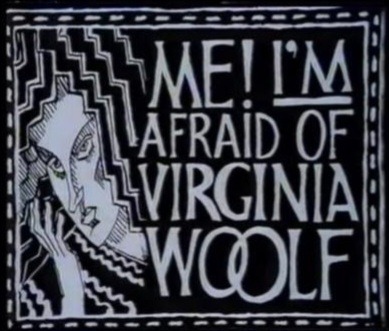
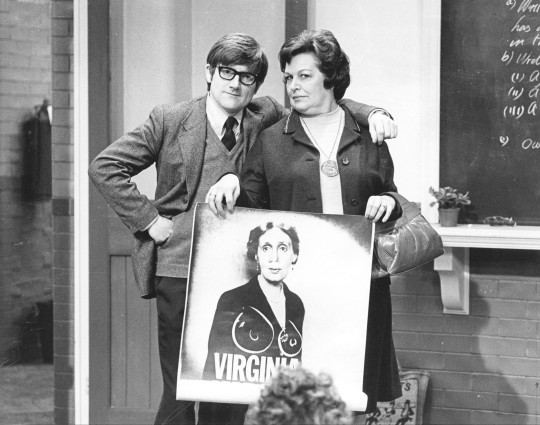
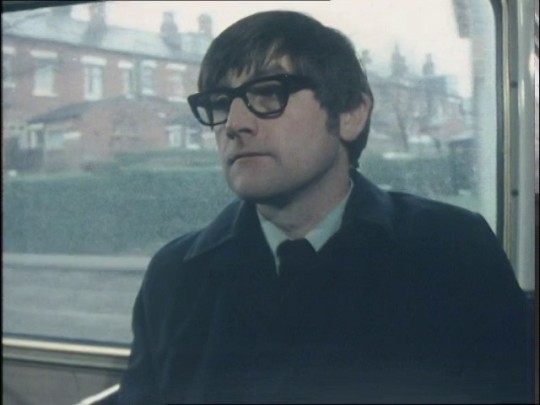
Six Plays by Alan Bennett: Me! I'm Afraid of Virginia Woolf (1.1, LWT, 1978)
"She's not one of these lesbians, is she?"
"What do you know about lesbians?"
"You'd be surprised at what I know. There's more in my head than nits. Oh, there was a talk about them on Woman's Hour. Cos I can't see what folks make all the fuss about. It's only women and other women. Like me and Mrs. Goodall."
"You and Mrs. Goodall?"
"Friends! Doing things together."
"Doing what together?"
"Having tea at Marshall and Snelgrove's."
"Having tea at Marshall and Snelgrove's isn't lesbianism."
"It's only liking being with other women."
"Not in Marshall and Snelgrove's."
"Well, where, then?"
"Bed. You brought the subject up."
"Well. So. Anyway, I've been in bed with other women."
"Who?"
"Your Aunty Phyllis, for a start."
"Aunty Phyllis isn't women!"
#six plays by alan bennett#me! i'm afraid of virginia woolf#alan bennett#single play#classic tv#queer tv#stephen frears#neville smith#thora hird#carol macready#derek thompson#bernard wrigley#gillian martell#barbara hicks#janine duvitski#hugh lloyd#margaret courtenay#lynne carol#alan igbon#Bennett spent the 70s slowly reinventing himself from a sketch comic for higher into the literary legend he's now best known as. he'd had#notable success with his single play A Day Out at the start of the decade‚ but getting this series of six one off dramas was a real#watershed moment in his career and set his path towards film work and Talking Heads and pop culture immortality. it's a familiarly Bennett#piece‚ complete with autobiographical insert; there's no doubt that Neville Smith is channelling the author in his thick rimmed glasses and#softly spoken downbeat yorkshire melody. Smith is Trevor‚ a listless academic caught up in pre midlife ennui‚ and quietly despairing of the#life‚ career‚ and unhappy (heterosexual) love affair he's built around himself. he's very good but risks being overshadowed by a series of#supports that deliver some of the writers best‚ most caustic dialogue: Thora Hird shines as his uncompromising and unbending mother‚ Hugh#Lloyd is brilliant as one of his mature students (an elderly quasi fascist obsessed with the horse whipping of delinquents) and the much#under appreciated Thompson is magnetic as the aggressive‚ arrogant‚ but sexually ambiguous (and ultimate symbol of freedom and self#knowledge) Skinner. densely scripted and packed with jokes that are both broadly scatalogical and intellectually highbrow‚ this is a real#gem of a piece. that opinion was widely shared; the play was nominated for three baftas at the 1979 awards
5 notes
·
View notes
Text
'Hearts in Atlantis' – Stephen King's coming-of-age tale on Max
Stephen King’s name is synonymous with modern horror and Hearts in Atlantis (2001) does indeed reverberate with suggestions of the dark side. Ultimately, however, it’s a story of the magic and wonder of childhood confronting the lies of the adult world and the predators that bully the weak. It’s closer to Stand By Me than The Stand, and closer still to the Ray Bradbury’s beautiful stories of…
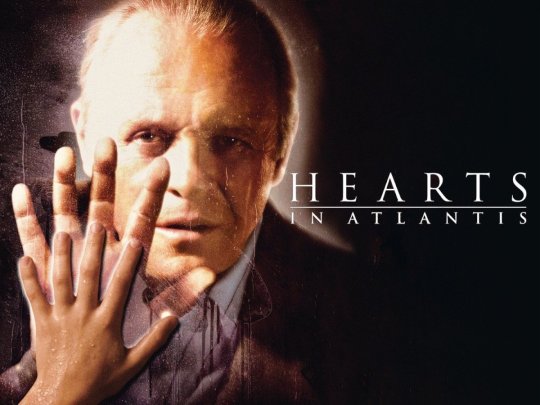
View On WordPress
#2001#Alan Tudyk#Anthony Hopkins#Anton Yelchin#David Morse#DVD#Hearts in Atlantis#Hope Davis#Max#Mika Boorem#Scott Hicks#Stephen King#VOD#William Goldman
1 note
·
View note
Text
(Part Two) Fan Expo Vancouver 2023 and Some Good News!
Part Two of my #fanexpovancouver2023 @fanexpovan report is here! And I got some great pics of a few of the top names as they talk about their work, a recap and more! #conventionreport #pacificnorthwest #stephenammell #michaelrooker #anthonydaniels
At Fan Expo Vancouver 2023, the many choices of what one can choose to focus on is wide and varied. When you stick around in the main staging area where all the Q&As happen, something entirely random can delight! I spent the second and third day mostly in this area since the rest of the gymnasium space was often packed. Between the panels, I often returned to Artists Alley and also Celebrity Row…

View On WordPress
#2023#Anthony Daniels#British Columbia#Convention Report#Faith Erin Hicks#Fan Expo Vancouver#Michael Rooker#Stephen Amell#Vancouver
0 notes
Text
GRAHAM NASH PASSES AWAY DURING CHILDBIRTH

Singer-Songwriter Graham Nash, aged 82, has passed away during childbirth. Nash, well-known for his high tenor and his career in Crosby, Stills, Nash and Young, and the Hollies, had been carrying a baby for 9 long months. However, his brittle bones and twig-like figure simply couldn’t handle it. He quietly went during the late hours of Sunday night.
“I can’t believe it,” says Allan Clarke, founding member of the Hollies as well as childhood friend of Graham Nash. “I was in bed with him last night. I am shocked to lose him so suddenly.”
“That’s fucking insane,” says Stephen Stills. “How did he even carry that thing?”
“I knew it,” Joni Mitchell. She had always attested to Nash’s delicate nature, even during the first days of their relationship together. “I always knew it would end like this…”
Nash’s other bandmates, Neil Young and David Crosby did not respond with any comments. However, another member of the Hollies, Tony Hicks, had something to say.
“Mpreg is real?” Hicks asked. He was soon too stunned to speak any further.
111 notes
·
View notes
Text

Photography by J Stephen Hicks
- Playmen, July 1981
60 notes
·
View notes
Text

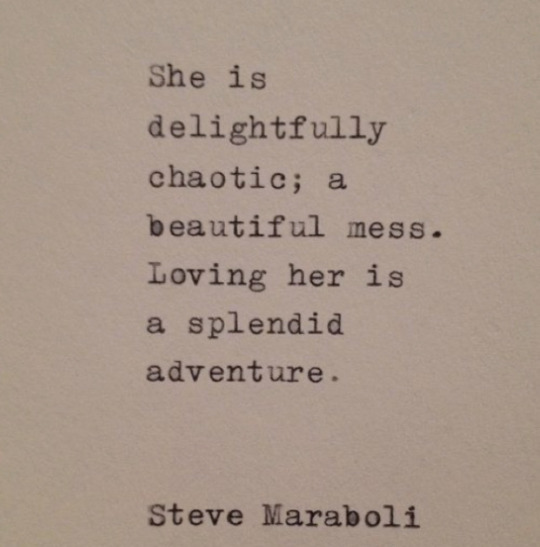
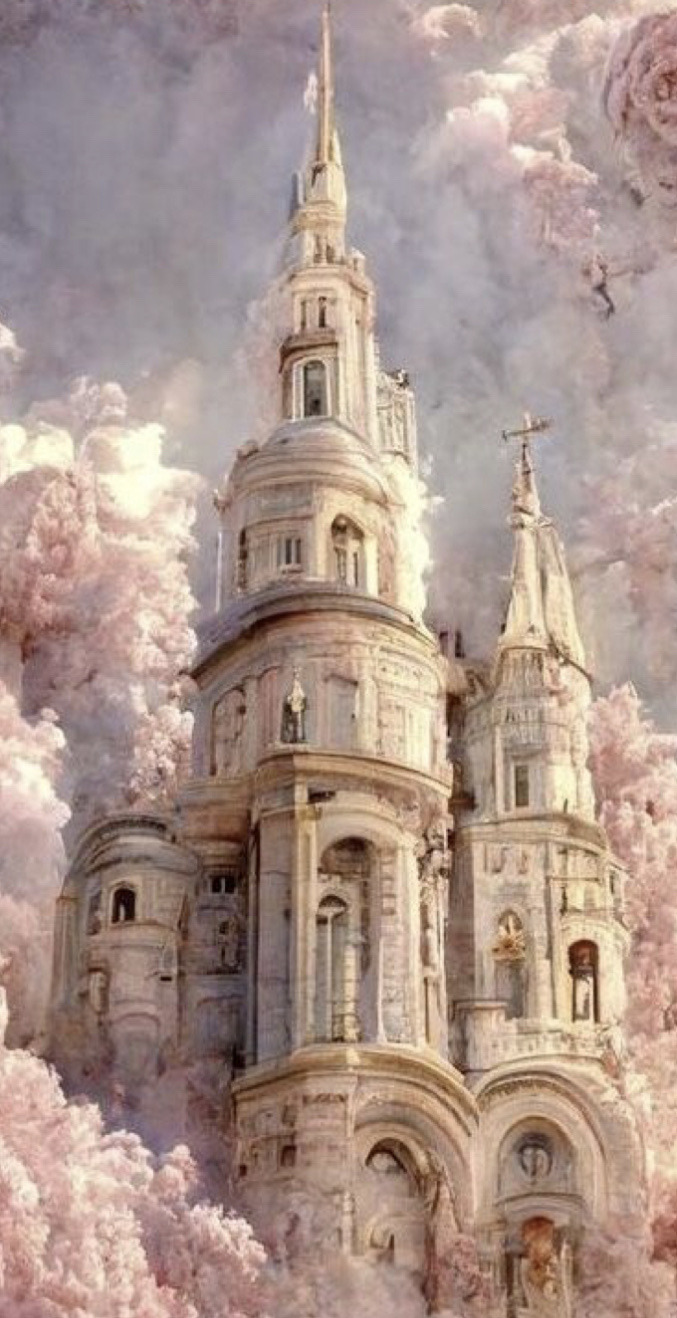
Quotes I live by: Loa edition
“Whatever the mind can conceive and believe, it can achieve.”
~Napoleon Hill
“Dream lofty dreams, and as you dream, so you shall become. Your vision is the promise of what you shall one day be; your ideal is the prophecy of what you shall at last unveil.”
~James Allen
“Create your future from your future, not from your past.”
~ Dr. Joe Dispenza
“What lies behind us and what lies before us are small matters compared to what lies within us.”
~ Ralph Waldo Emerson
“The law of consciousness is like a coin: heads, you win; tails, you lose. It is up to you to choose the outcome of your life.”
~Stephen Richards
“You will become as small as your controlling desire, and as great as your dominant aspiration”
~James Allen
“If something you want is slow to come to you, it can be for only one reason: You are spending more time focused upon its absence than you are about its presence."
~ABRAHAM HICKS
“Everything can be taken from a man but one thing: the last of human freedom—to choose one’s attitude in any given set of circumstances.”
~ Viktor Frankl
"The point of power is always in the present moment."
~Louise Hay
"The only limit to what we can achieve is the power of our own minds."
~ Henry Ford
“You can have anything you want if you are willing to give up the belief that you can’t have it.”
~Dr. Robert Anthony
“Your opinion is your opinion, your perception is your perception, change them and you change your life."
~Wayne Dayer
“Paradoxically, what works against us also works for us. If you can dream it, and believe it, then you can do it!”
~Tony Robbins
“Whether you think you can or think you can’t, you’re right.”
~Henry ford
“If you believe in what you are doing, then let nothing hold you up in your work. Much of the best work of the world has been done against seeming impossibilities.”
Dale Carnegie
"You are responsible for your life and the power of your consciousness. Nothing can stop you from fulfilling your true potential."
~Deepak Chopra
"Your outer world is a reflection of your inner world." ~Unknown
"The key to success is the power of imagination. Create an image of what you want and make it your focus."
~Tony Robbins
“People are like stained-glass windows. They sparkle and shine when the sun is out, but when the darkness sets in; their true beauty is revealed only if there is light from within.”
~ Dr. Elizabeth Kubler-Ross
"Nothing can bring you peace but yourself."
~ Ralph Waldo Emerson
"Go confidently in the direction of your dreams. Live the life you have imagined."
~ Henry David Thoreau
325 notes
·
View notes
Text
ENCONTRE UM AUTOR:
Envie sugestões. Leia uma citação no modo aleatório.
Autores Desconhecidos
Adélia Prado
Adrian Tchaikovsky
Affonso Romano de Sant’anna
Alain de Botton
Albert Einstein
Aldous Huxley
Alexander Pushkin
Amanda Gorman
Anaïs Nin
Andy Warhol
Andy Wootea
Anna Quindlen
Anne Frank
Antoine de Saint-Exupéry
Aristóteles
Arnaldo Jabor
Arthur Schopenhauer
Augusto Cury
Ben Howard
Benjamin Alire Sáenz
Benjamin Rush
Bill Keane
Bob Dylan
Brigitte Nicole
C. JoyBell C.
C.S. Lewis
Carl Jung
Carlos Drummond de Andrade
Carlos Fuentes
Carol Ann Duffy
Carol Rifka Brunt
Carolina Maria de Jesus
Caroline Kennedy
Cassandra Clare
Cecelia Ahern
Cecília Meireles
Cesare Pavese
Charles Baudelaire
Charles Chaplin
Charlotte Nsingi
Cheryl Strayed
Clarice Lispector
Claude Debussy
Coco Chanel
Connor Franta
Coolleen Hoover
Cora Coralina
Czesław Miłosz
Dale Carnegie
David Hume
Deborah Levy
Djuna Barnes
Dmitri Shostakovich
Douglas Coupland
Dream Hampton
E. E. Cummings
E. Grin
E. Lockhart
EA Bucchianeri
Edith Wharton
Ekta Somera
Elbert Hubbard
Elizabeth Acevedo
Elizabeth Strout
Emile Coue
Emily Brontë
Ernest Hemingway
Esther Hicks
Faraaz Kazi
Farah Gabdon
Fernando Pessoa
Fiódor Dostoiévski
Florbela Espanca
Franz Kafka
Frédéric Chopin
Fredrik Backman
Friedrich Nietzsche
Galileu Galilei
Georg Wilhelm Friedrich Hegel
George Orwell
Hafiz
Hanif Abdurraqib
Helen Oyeyemi
Henry Miller
Henry Rollins
Hilda Hilst
Iain Thomas
Immanuel Kant
Jacki Joyner-Kersee
James Baldwin
James Patterson
Jane Austen
Jean Jacques Rousseau
Jean Rhys
Jean-Paul Sartre
Jeremy Hammond
JK Rowling
João Guimarães Rosa
Joe Brock
Johannes Brahms
John Banville
John C. Maxwell
John Green
John Wooden
Jojo Moyes
Jorge Amado
José Leite Lopes
Joy Harjo
Juan Ramón Jiménez
Juansen Dizon
Katrina Mayer
Kurt Cobain
L.J. Smith
L.M. Montgomery
Leo Tolstoy
Lisa Kleypas
Lord Byron
Lord Huron
Louise Glück
Lucille Clifton
Ludwig van Beethoven
Lya Luft
Machado de Assis
Maggi Myers
Mahmoud Darwish
Manila Luzon
Manuel Bandeira
Marcel Proust
Margaret Mead
Marina Abramović
Mario Quintana
Mark Yakich
Marla de Queiroz
Martha Medeiros
Martin Luther King
Mary Oliver
Mattia
Maya Angelou
Mehdi Akhavan-Sales
Melissa Cox
Michaela Chung
Miguel de Cervantes Saavedra
Mitch Albom
N.K. Jemisin
Neal Shusterman
Neil Gaiman
Nicholas Sparks
Nietzsche
Nikita Gill
Nora Roberts
Ocean Vuong
Osho
Pablo Neruda
Patrick Rothfuss
Patti Smith
Paulo Coelho
Paulo Leminski
Perina
Peter Ilyich Tchaikovsky
Phil Good
Pierre Ronsard
Platão
Poe
R.M. Drake
Raamai
Rabindranath Tagore
Rachel de Queiroz
Ralph Emerson
Raymond Chandler
René Descartes
Reyna Biddy
Richard Kadrey
Richard Wagner
Ritu Ghatourey
Roald Dahl
Robert Schumann
Roy T. Bennett
Rumi
Ruth Rendell
Sage Francis
Séneca
Sérgio Vaz
Shirley Jackson
Sigmund Freud
Simone de Beauvoir
Spike Jonze
Stars Go Dim
Steve Jobs
Stephen Chbosky
Stevie Nicks
Sumaiya
Susan Gale
Sydney J. Harris
Sylvester McNutt
Sylvia Plath
Sysanna Kaysen
Ted Chiang
Thomas Keneally
Thomas Mann
Truman Capote
Tyler Knott Gregson
Veronica Roth
Victor Hugo
Vincent van Gogh
Virgílio Ferreira
Virginia Woolf
Vladimir Nabokov
Voltaire
Wale Ayinla
Warsan Shire
William C. Hannan
William Shakespeare
Wolfgang Amadeus Mozart
Yasmin Mogahed
Yoke Lore
Yoko Ogawa
317 notes
·
View notes
Text
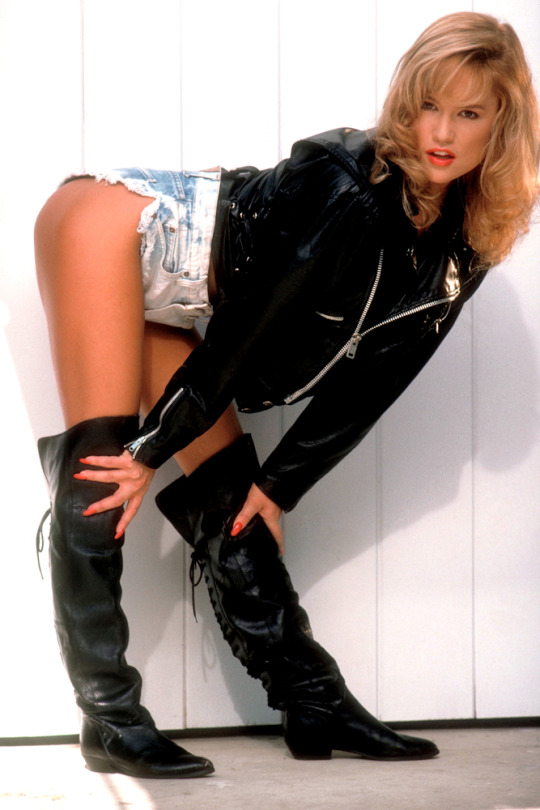
Lisa Boyle
Born in Chicago, Illinois, USA in August 1964, Boyle graduated from High School in 1982 and moved to Kailua, Hawaii to work as a waitress, before moving to Los Angeles, breaking up with her boyfriend and deciding to become a nude model. Initially she posed for photographers like J. Stephen Hicks with her photographs appearing magazines like Gallery, however she eventually posed for Playboy magazines and became a favourite model of it's readers, appearing in dozens of issues from 1995 right through to the early 2000's. In addition she also made bit appearances in dozens of Hollywood movies and TV series, mostly appearing as the "sexy girl", including Earth Girls Are Easy, Bad Boys, Showgirls, Baywatch, Married... With Children and the Nutty Professor. She also appeared as a video vixen for acts such as Aerosmith and Warren G.
26 notes
·
View notes
Text
Morgan Stephens at Daily Kos:
As the election season reaches its fever pitch, labor unions are rallying behind their chosen candidates. The Teamsters, a national union representing 1.3 million workers in the transportation industry and many other sectors, announced on Wednesday that they have opted not to endorse any presidential candidate this year. Teamsters president Sean O’Brien reacted to criticism by defending the decision not to endorse a Republican or Democratic candidate on CNN Thursday, citing the Donald Trump campaign’s refusal to support the PRO Act, which gives unions more power to organize. Democratic nominee Kamala Harris has already agreed to sign that bill into law.
“This was not an endorsement for the Republican Party,” O’Brien told CNN. “This is a wake-up call that the system is broken.” But regional Teamsters have opted to go rogue. The 300,000-member West Coast Teamsters faction has thrown its support behind the vice president, signaling a strategic alignment with the Harris campaign. Ten other regional Teamsters councils have issued statements of support for Harris, including in the battleground states of Michigan, Wisconsin, and Nevada. "Trump wishes your bosses could just fire you for challenging their authority with a strike. Never forget that. Trump wants to eliminate your legally protected right to challenge your employer and demand the dignity and respect all hardworking Teamsters deserve," said Rick Hicks, president of Teamsters Joint Council 28, in the division’s official endorsement of Harris. Prominent labor unions American Federation of Labor and Congress of Industrial Organizations, known collectively as the AFL-CIO, threw their support behind the Harris-Walz ticket with an endorsement earlier this month.
[...] One thing is clear: It’s the Democratic Party that stands with labor rights activists—figuratively and literally. President Joe Biden was the first sitting president to walk a picket line in a show of solidarity with striking United Auto Workers, and has acquired the nickname "Union Joe." The Biden-Harris administration has been deemed a historically pro-labor administration, according to University of Rhode Island history professor Erik Loomis, who has authored three books on labor in America.
Local and regional Teamsters unions have basically told Sean O'Brien to "go jump in a lake" with their backing of Kamala Harris.
#Teamsters#Kamala Harris#Sean O'Brien#Unions#Labor#2024 Presidential Election#2024 Elections#Endorsements#PRO Act#donald trump
16 notes
·
View notes